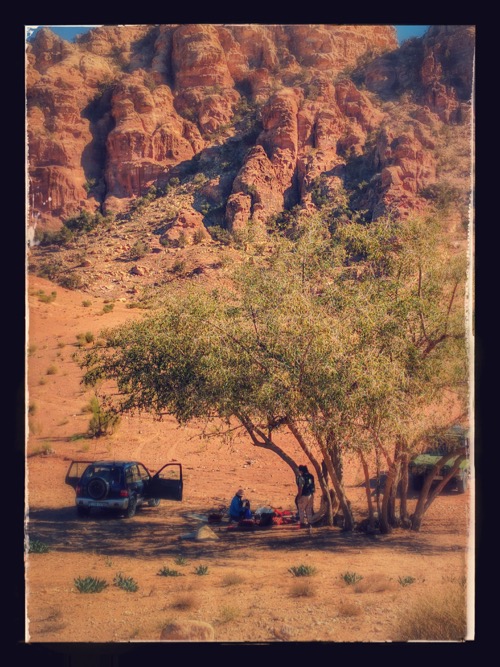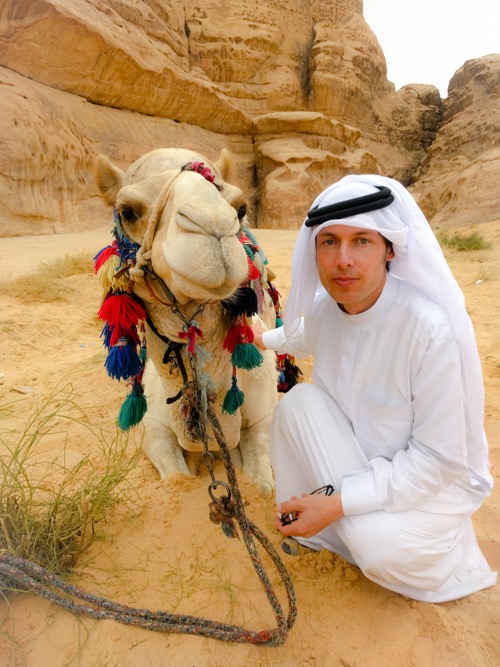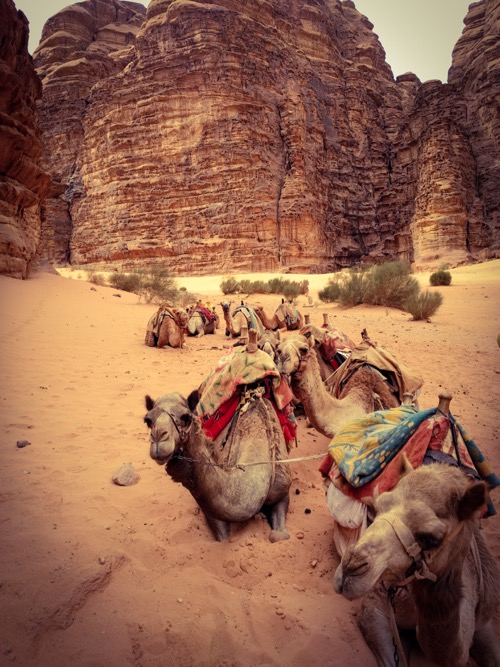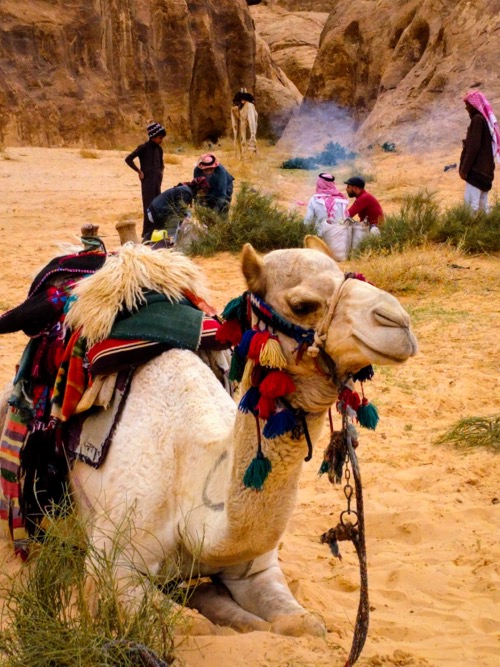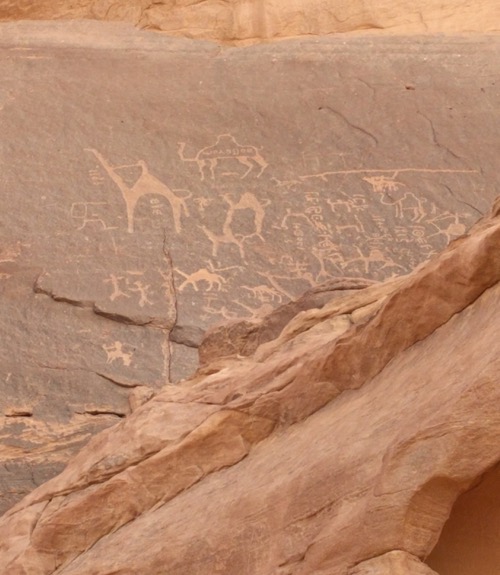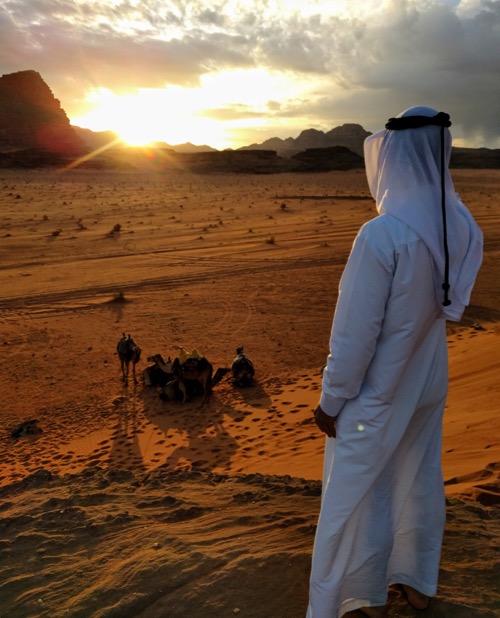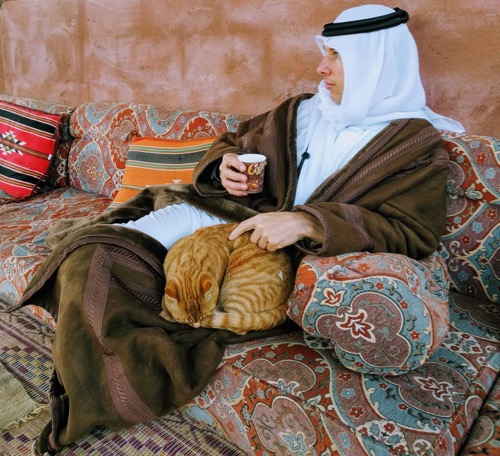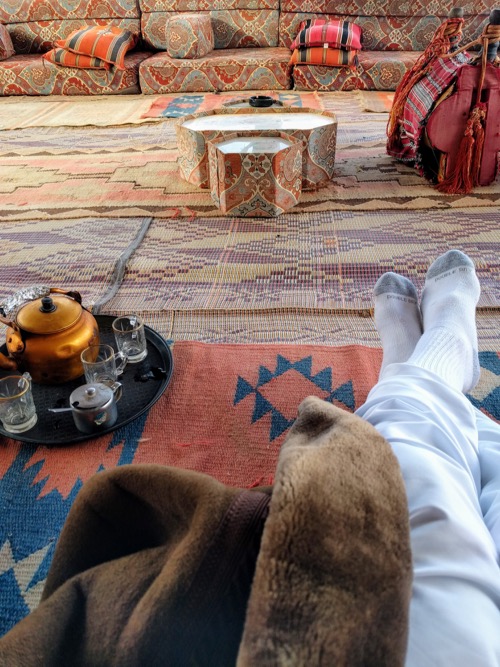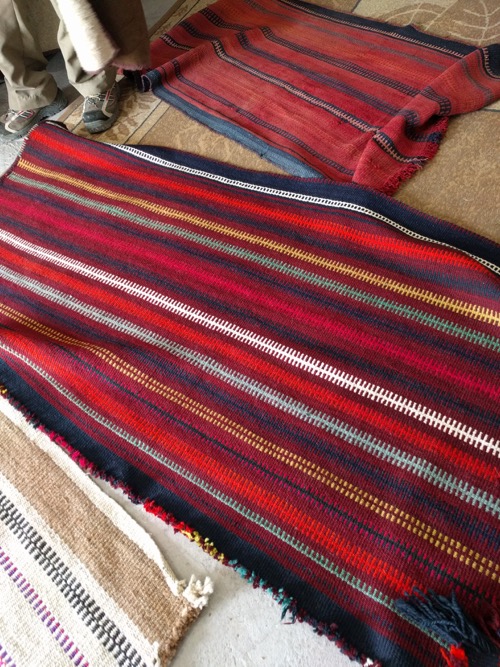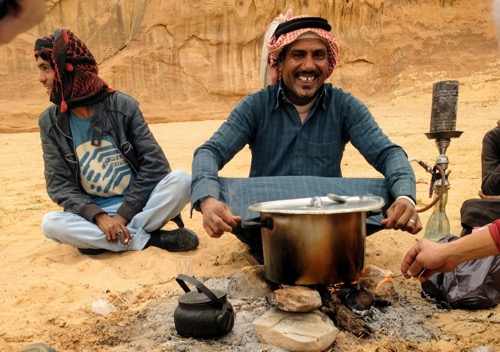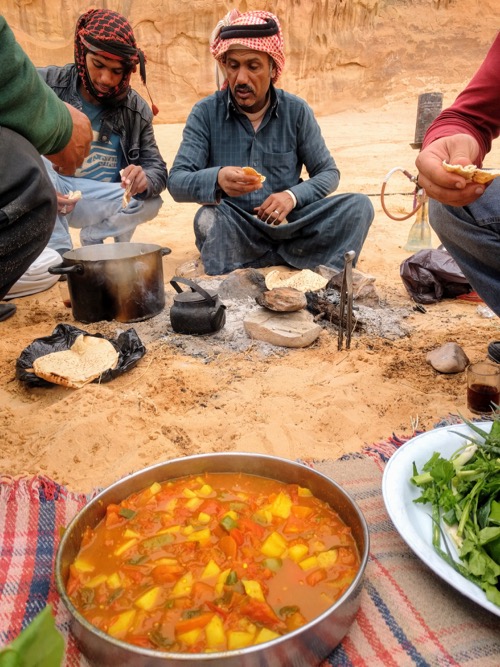While in Wadi Musa I had met our Bedu guide’s 92 year old mother. She was living in an apartment in the town. I asked her if she preferred life when she was a young woman and there was less access to Western conveniences, or if she preferred life in the town today. She told me that in former times life was harder work, but more peaceful. Today life is easier but less peaceful.
While having a picnic under a tree in the desert one morning while staying in the area of Wadi Musa a Bedu man recited a poem to me. The poem related the story of a young woman who a prince had showered gifts on to win her heart. At one point in the poem the young woman says ‘I prefer the Beit Sh‘aer (goat hair house – the Bedu term for their large tents) to the castle you have given me’. The woman in the poem reminded me of the slight regret the 92 year old lady had at having left her earlier and more peaceful existence in exchange for town living.
After Wadi Musa we went south to Wadi Rum, the largest valley (wadi) in all of Jordan.
After Asia’s green abundance of foliage, Arabia’s lucid open spaces are a sharp contrast. There I was happy amongst the vivid green leaves and tall dipterocarp trunks. Around Amman the arid steppe didn’t really excite me. Now I’m down amongst stone hills and mountains in the clean desert, I am happy again.
The landscape here almost seems lifted from the deep past, from Earth in an earlier incarnation.
Walking through the desert on a camel’s back one evening, wearing white disdashi and white hatta, I looked away to my left at the sun sinking over a range of stone mountains and sending light across the desert sands. I thought how in this desert all excrescences, everything tangled, everything petty, is loped off and cast off. There is a purity in the desert. A spirit, a land, a state of being, unsullied by smallness or complications.
Riding camels through this landscape is part of properly inhabiting this place.
Their slow and powerful gait, their wide and amply padded feet easily pressing firm against the slippery sands, their quiet and gentle natures.
As you ride a camel through this desert you feel connected with centuries and millenia of desert voyagers, people who have passed this way on camel back long before fwds existed, or before the modern nation state was dreamt up with its angular borders cutting through desert sands.
Nabotean inscriptions on the rock…
We tethered our camels and I walked up a sand dune and stood watching the sun set behind a mountain. The whiteness of my robes felt part of the purity and elevation of the mountains of this Arabian desert.
The next morning I reclined in our Bedu tent drinking Arabian coffee spiced with cardamon, and having my legs warmed by the quietly purring cat Bush Bush.
The robes, the brightly coloured rugs, and cushions and hanging fabrics, the insubstantial nature of the tent-surroundings, the easy access to the open air, all this encourages a reclining indolence with a regal air to it.
It is hundreds of years since kings and princes were a meaningful and easily witnessed part of most Western societies. But the Bedu sheik, or at least his trapppings, are still just around the corner when you’re in southern Jordan. Being in this landscape, wearing these clothes, and relaxing in Bedu tents, I can’t help feeling like a man from a different era, an era when men weren’t constrained by domestic routines, by doing the shopping at a supermarket, doing the dishes, vacuuming the carpet, kow-towing to an obese and middle-aged administrator and tapping away at a Microsoft Office product. I couldn’t help but feel more like a dignified and free man.
Even wearing robes in the desert is part of being here. It is something which helps me enter the place more deeply. They are warm and relaxing, regal and loose. I feel restful in this attire.
These aspects of daily surroundings – the stone mountains of Wadi Rum, the bright carpets and cushions of large woollen tents, the reclining around the fire with spiced coffee, the sumptuous and flowing robes and enfolding and protective hattas, are still the norm in Bedu culture today.
This is what shocks me: these things are still part of daily life for thousands or hundreds of thousands of families – theses aspects are not just relics rolled out of storage for the incoming tourist crowd. Bedu culture is not dead. If you think it is dead, go for a drive out into the hills in the south of Jordan, walk up to a tent in the desert or at the foot of a mountain, and look inside. This is their world.
The Bedu people can be grasping and venal, they can be aggressive and unpredictable, they often don’t have access to good health care or good education, but they are also less bowed down by a lot of the clutter we put up with in the West. In short, there are still some princes and kings out there in the desert.
Sitting and eating with some Bedu in the desert north of Wadi Rum…
